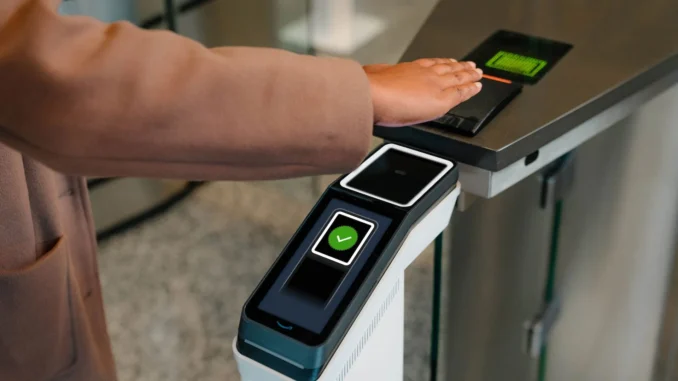
By HTN staff - 12.2.2023
At the recent AWS re:Invent, Amazon Web Services, Inc. (AWS), a subsidiary of Amazon.com, Inc., unveiled Amazon One Enterprise, a palm-based identity service designed to enhance organizational security and prevent costly security breaches. This new service is set to revolutionize the hotel industry by providing a fast, convenient, and contactless experience for guests and staff to access physical locations such as hotels and resorts, as well as digital assets like restricted software resources.
Traditional methods of authentication, such as badges, PINs, and passwords, have long been used by hotels to grant access to buildings and software resources. However, these methods have common security vulnerabilities. Badges can be lost, shared, cloned, or stolen, while PINs and passwords are easily forgotten, guessable, or shared. Amazon One Enterprise aims to eliminate these issues, reducing operational overhead associated with the management of traditional authentication methods.
Amazon One Enterprise is a fully managed service that provides highly accurate and secure access control through an easy-to-use biometric identification device. The service combines palm and vein imagery for biometric matching and reportedly delivers an accuracy rate of 99.9999%, exceeding the accuracy of other biometric alternatives. The palm-recognition technology uses advanced artificial intelligence and machine learning to create a palm signature that is associated with identification credentials like a badge, employee ID, or PIN.
The introduction of Amazon One Enterprise into the hotel industry could significantly enhance the guest experience. It replaces the need for multiple authentication methods, allowing guests and staff to use their palm to access physical spaces and digital assets. To begin, a user can enroll by hovering their palm over an Amazon One enrollment device and associating their palm with their organization’s preferred ID—such as badges, PINs, and passwords—and this can be done in less than a minute.
Protecting the privacy of these users is a foundational element of Amazon One Enterprise. The new service is designed to ensure palm images, user credentials, and other metadata are immediately encrypted, using industry-leading encryption technology, and sent to a dedicated Amazon One Enterprise service account in the AWS Cloud, with all of the security and isolation features of AWS.
Amazon One Enterprise is currently available in preview in the United States and hospitality organizations are expressing keen interest, viewing the technology as a more secure, efficient way to manage authentication and access their systems. Among them is IHG Hotels & Resorts, the global hospitality company with over 6,000 hotels in more than 100 countries, which will begin piloting the technology next year.
“We are excited to work with Amazon One Enterprise for a more secure, efficient way to manage authentication and access our systems,” said Nick Krieble, global head of Identity and Access Management, IHG, in a press statement. “With Amazon One Enterprise, our goal is to offer employees a new and convenient way to identify themselves and gain access to our software systems by hovering their palm over the Amazon One device. This approach will streamline the way we authenticate, give staff access to the tools they need, and make access easier than ever for them.”
Boon Edam, a leading manufacturer of revolving doors, security doors, and security turnstiles, sees Amazon One Enterprise as a way to offer authorized entrances using innovative palm biometric technology that raises their security bar and delivers a convenient workplace experience. Paznic, a security company that specializes in technology that simplifies and modernizes the way financial institutions manage access control and safety deposit boxes, is also looking forward to launching Amazon One Enterprise across their locations.
Amazon One Enterprise represents a potentially large shift in how hotels manage access control. By replacing traditional authentication methods with a highly accurate and secure biometric identification device, hotels can enhance the guest experience, improve security, and reduce operational overhead. As the service is rolled out, the industry will be watching closely to see how it is adopted and what impact it has on the hospitality industry.
